This month,Laruan after 102 years of approaching every day with a spitfire personality and sticking out her tongue for every picture, my beloved great-grandmother passed away.
She was the matriarch of my mother's family, and her absence was felt immediately. I was talking to her on the phone one day, and the next she was gone. It was a quick and relatively painless death, unlike the protracted battles with dementia, cancer, and Alzheimer's other family members have experienced.
Almost immediately after I received word of her passing, I was faced with a distinctly modern dilemma: to post or not to post on social media? Was it appropriate to acknowledge my loss publicly, broadcasting grief to my followers for validation, or let the personal tragedy fly under the radar, disappearing from various networks while I handled the mourning process in my own way?
SEE ALSO: When a loved one dies, their Facebook profile is both a blessing and a curseI didn't post. I didn't feel it was appropriate, since my 102-year-old great-grandma had never used computers, and I didn't want to draw attention to the deeply personal matter.
Grief is an emotion that feels out of place on social media, where most people painstakingly curate the most appealing versions of themselves. The feeling is often a visceral, raw reaction to someone's absence, and the mourning process is usually an acknowledgment of that loss. For me, that's not something to be expressed in 140 character tweets or a strategically-filtered photo collage that would exist in the same timeline as someone over-enthusiastically hawking their latest pyramid scheme sales pitch.
The way social media networks commodify IRL relationships is troubling as well, as Facebook and other social networks have become the de facto mechanism of acknowledging birthdays and confirming romantic commitments. Bringing the loss of a death into the equation felt more than heavy-handed, and I thought of my friends who have had to deal with their own losses being magnified on social media.
But my decision was superseded by another family member, who created a tribute post and tagged my profile. I was annoyed that the decision had been taken from me, forcing me to acknowledge our collective loss on the internet.
The post was sincere, though, so I couldn't entirely hate it. As I traveled home to help with the funeral arrangements, my phone was filled with notifications from her friends sending their condolences — and my perspective began to shift.
Most of these comments were filled with personal anecdotes, much more than the typical "HBD!" of a social media birthday wish. There were real interactions taking place here, the type of sharing that these online spaces publicly aspire to foster but so rarely manage to actually create.
Once we hosted visitation hours at a funeral home, I dropped the rest of my qualms. The outpouring of community and support came after a public obituary was posted, both in print and online.
Social media posts, when handled correctly, are a much more intimate, personalized obituary for a loved one than anything that would be published elsewhere. Why should I judge that? After all, the ceremony of the burial process is for the benefit of the living, not the dead.
View this post on Instagram
I might not be exactly comfortable broadcasting the extent of my mourning online, but I'm now glad that social media exists as an outlet for others. We all handle death and the grief that comes with it in our own way — so creating an electronic tribute is just as valid as leaving flowers on a headstone.
Topics Facebook Instagram Social Media
Previous:Mariah Carey Has a Cold
 DACApocalypse Now
DACApocalypse Now
 O Canada by Sadie Stein
O Canada by Sadie Stein
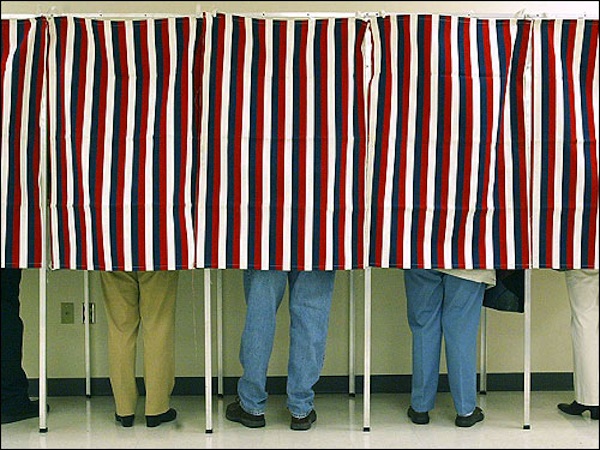 Happy Election Day by Sadie Stein
Happy Election Day by Sadie Stein
 The Literary World by Sadie Stein
The Literary World by Sadie Stein
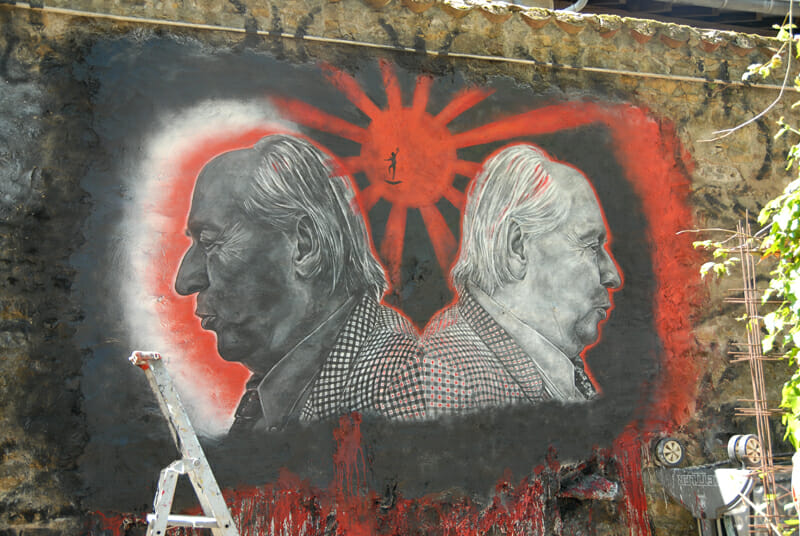 Right to Burn
Right to Burn
 The Great Columbia Book Slide of 1934 by Sadie Stein
The Great Columbia Book Slide of 1934 by Sadie Stein
 Beat It by Sadie Stein
Beat It by Sadie Stein
 RIP Charlotte Zolotow, and Other News by Sadie Stein
RIP Charlotte Zolotow, and Other News by Sadie Stein
 Social Media Forensics
Social Media Forensics
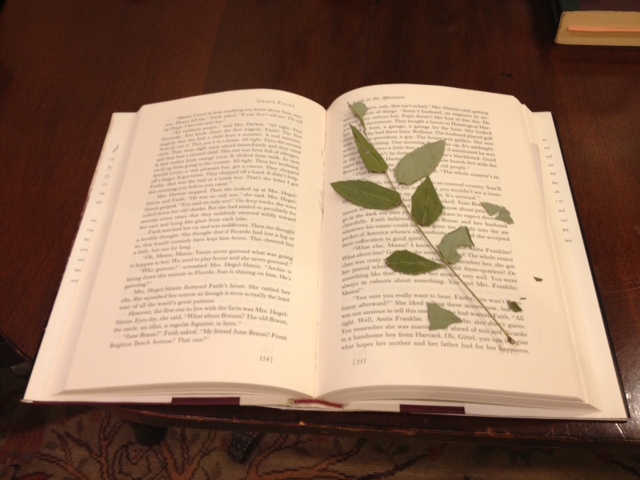 Reading Through the Leaves by Amy Grace Loyd
Reading Through the Leaves by Amy Grace Loyd
 Mark Lilla’s Comfort Zone
Mark Lilla’s Comfort Zone
 My First Book(s) by David L. Ulin
My First Book(s) by David L. Ulin
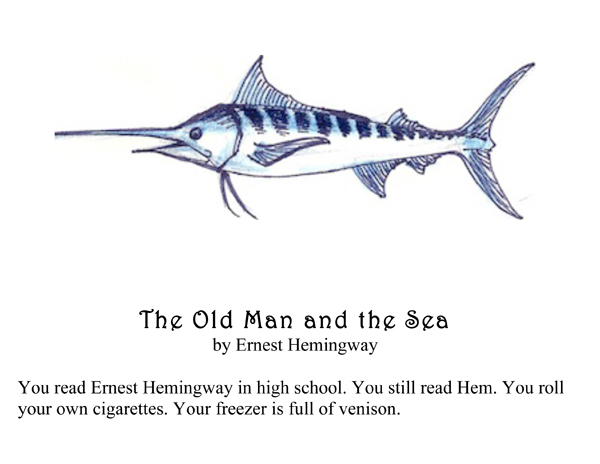 The High School Literature Zodiac
The High School Literature Zodiac
 What We’re Loving: Baseball, Giacometti, Literary Sprinting by The Paris Review
What We’re Loving: Baseball, Giacometti, Literary Sprinting by The Paris Review
 These Citadels of Power
These Citadels of Power
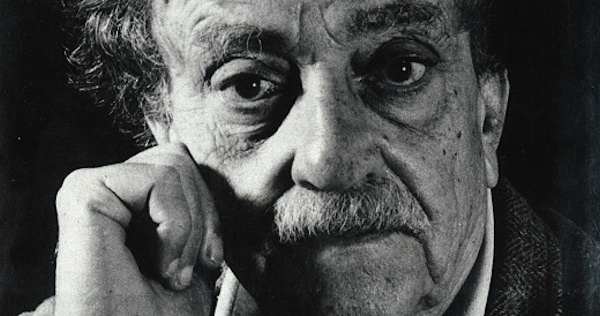 Weapons of Mass Instruction by Sadie Stein
Weapons of Mass Instruction by Sadie Stein
 The Known Unknown: On Sigizmund Krzhizhanovsky
The Known Unknown: On Sigizmund Krzhizhanovsky
 The Great Columbia Book Slide of 1934 by Sadie Stein
The Great Columbia Book Slide of 1934 by Sadie Stein
 As Stalin Lay Dying
As Stalin Lay Dying
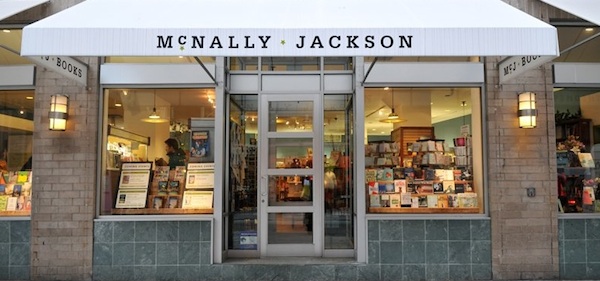 What We’re Doing by Sadie Stein
What We’re Doing by Sadie Stein
Best Sony deal: Save $41.99 on the WFNYT mini crossword answers for April 23, 2025Trump signs AI education order to train KMotorola launches three new foldable Razr phones for 2025NYT Strands hints, answers for April 24NYT Connections Sports Edition hints and answers for April 24: Tips to solve Connections #213Best JBL deal: Save $30 on the Flip 6 at AmazonBest Switch 2 camera preorder: Get the Hori Piranha Plant camera for $59.99GameStop has the best Nintendo Switch tradeGameStop Nintendo Switch 2 preorders: Reserve your console at GameStop to get the best tradeHow to watch 'Babygirl' at home: Streaming detailsApple, Meta hit with massive EU antitrust fines as regulators go on the marchBest Samsung Galaxy Buds 3 Pro deal: Save 20% at AmazonWordle today: The answer and hints for April 25, 2025Wordle today: The answer and hints for April 25, 2025No, those Chinese factory TikToks won't help you bypass Trump's tariffsBest Lego Star Wars deal: Save $14.99 on the Star Wars: The Phantom Menace Mos Espa Podrace DioramaNYT Connections Sports Edition hints and answers for April 25: Tips to solve Connections #214'Andor' and its time jumps: BBY, explainedWordle today: The answer and hints for April 23, 2025 Monsters for Grownups: Learning About Our Reptilian Overlords The Airless, Lacquered Perfection of Steely Dan’s “Gaucho” Looking Back at the Literature of the Obama Years The Last Days of Foamhenge Harold Pinter’s Gloriously Profane Poem “American Football” A Letter from Zora Neale Hurston John Ashbery’s Collages Are the Perfect Complement to His Poems Sam Lipsyte on Mary Robison’s “Likely Lake” The Trojan Horse of Pop: On George Michael What Was the Princess Diana Beanie Baby? ‘Chasing Amy’ and the Toxic “Nerd Masculinity” of the 90s In Celebration, Florida, the American Dream Goes South The Return of Münchausen: An Illustrated Adaptation Don’t Trust the Golfers—Especially Not the Golfer Our Contributors Pick Their Favorite Books of the Year The Wonders of the Prelinger Archive Dostoyevsky’s Empathy An Exhibition of Early Photographs Suggests an Unencumbered Medium Emile Zola Had Some Strange Complaints About London Being Seymour Glass: Why I Borrowed a Name from Salinger